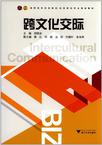跨文化交际
出版时间:2010-8 出版社:浙江大学 作者:郑晓泉 编 页数:212
内容概要
本教材在内容上,针对高职高专教育人才培养目标、知识结构和能力要求,充分体现理论知识够用为度,着重培养学生跨文化交际技能的目的。第一章以基本知识和理论为主,介绍文化、交际、跨文化交际的定义、概念,阐述交际与文化的关系、文化价值观对跨文化交际的影响。第二、第三、第四、第五、第六章通过对跨文化交际案例的分析,向学生展示文化差异在跨文化交际中的种种表现,以及在特定的国际商务语境中的文化差异。
在体例和编写手法上,教材各个单元的构成形式多样,不求整齐划一,以适合不同需求与兴趣的学生,并给教师留有一定的选择余地,可以结合具体情况更加生动活泼地组织教学。每个章节都配有思考题,给学生留有思考、探讨的空间。同时制作了电子课件。附录中提供了部分讨论题及课堂任务的参考答案。
书籍目录
CHAPTER 1 Understanding Culture and Intercultural
Communication
1.1 Understanding Culture
1.2 Understanding Intercultural Communication
Exercises
CHAPTER 2 Cultural Differences in Daily Interactivities
2.1 Greeting
2.2 Addressing
2.3 Visiting
2.4 Gift-giving
Exercises
CHAPTER 3 Cultural Differences in Social Value
3.1 Politeness
3.2 Friendship
3.3 Family Relationship
3.4 Education
Exercises
CHAPTER 4 Cultural Differences in Connotative Meanings"
4.1 Color
4.2 Number
4.3 Associative Target
4.4 Taboo
Exercises
CHAPTER 5 Cultural Differences in Nonverbal Communication"
5.1 Nonverbal Communication
5.2 Body Language
5.3 Paralanguage
5.4 Object Language
5.5 Environmental Language
Exercises
CHAPTER 6 Intercultural Communication in Business
Situation..-
6.1 Intercultural Business Writing
6.2 Intercultural Business Negotiation
6.3 Intercultural Business Protocol
6.4 Intercultural Design of Advertising and Trademark
6.5 Intercultural Marketing Communication
6.6 Intercultural Corporate Culture
Exercises
References
章节摘录
版权页: 插图: 2.3.2Different Countries Have Different Visiting Courtesy Before visiting, the Westerners prefer to arrange the time in advance. Making an appointment in advance is basic politeness rules in Western countries. Generally, the Westemers are accustomed to do one thing at a time and may be uncomfortable when an activity is interrupted. They are used to organizing and arranging their time. Visitors who "drop by" without prior notice may interrupt their host's personal time. Casual visiting is usually regarded as impolite. Thus, making an appointment before visiting him or her is generally preferred to a "dropping by". So to accommodate other people's schedules, the Westerners make business and social engagements several days or weeks in advance. The language used to make a request of visiting should also be paid attention to. The following are some suitable expressions: Mr. White and I would like to come and visit you. Would it be convenient for us to come on next Friday evening? There's something I'd like to talk over with you. I wonder if it would be convenient to meet you this Friday afternoon. Shall we discuss the matter at 10 tomorrow morning? If not, please ring me to make another time--any thanks. Could we see each other for about an hour on Friday afternoon at three o'clock? I'm in town for a few days and would very much like to come and visit you at your house. Would it be convenient if I call on you this evening? I haven't seen you for a long time. I was wondering whether I could come round to visit you sometime. After receiving an invitation, unequivocal reply should be given. For the Western custom is much stricter than Chinese custom in the matter of replying to invitations. When you receive an invitation you should answer it immediately, saying definitely whether you are able to accept it or not. If the invitation is given by word of mouth, in conversation or at a chance meeting, you should answer at once whether you can come or not. If you cannot give an answer at that time, you may say, "May I let you know this evening?" or some such words. Reply, like "I'll try to come." willcause to be perplexed or confounded.
编辑推荐
《高职高专商务英语、应用英语专业规划教材•跨文化交际》由浙江大学出版社出版。
图书封面
评论、评分、阅读与下载
用户评论 (总计0条)
相关图书
- 机电产品绿色设计技术与评价
- 篮球裁判理论与实践教程
- 新编英语实用教程(第2册)
- 幼儿思维数学
- 中华人民共和国卫生标准汇编
- 基础医学概论
- 医学影像检查技术学
- 神经源性膀胱的评估与治疗
- 影像核医学
- 临床护理相关仪器设备使用与维护
- 针灸治疗皮肤病效验集
- 温病浅谈
- 职场抑郁症者重返社会
- 牟宗三与康德关于智的直觉问题的比较研究
- 2012-2013华图版浙江事业单位公开招聘工作人员考试专用教材-综合基础知识专家命题预测试卷
- 小学数学(6上)
- 大器
- 深圳转型
- 新教材全解·跟我学数学(上册)
- 跟我学数学
- 新教材全解·跟我学数学(上册)
- 新教材全解·跟我学数学(上册)
- 名师教我学作文(5上人教版)
- 名师教我学作文(4上人教版)
- 名师教我学作文(6上人教版)
